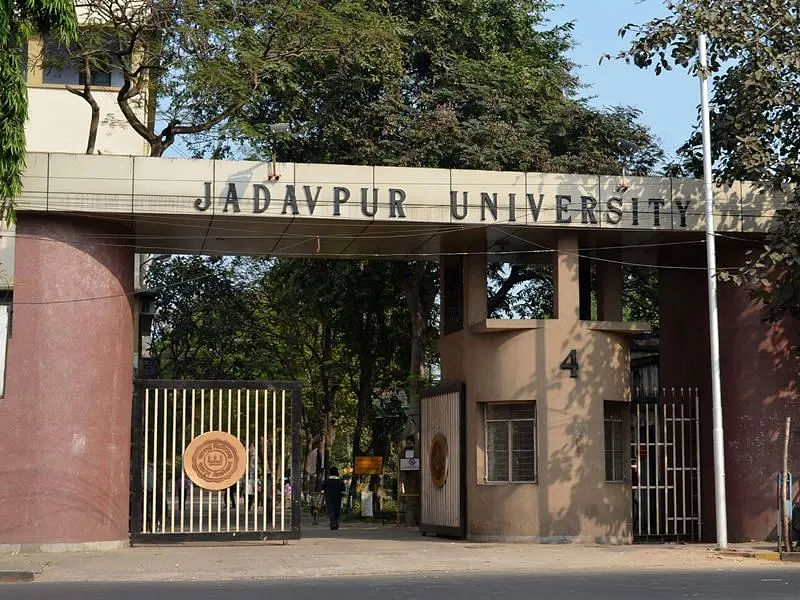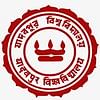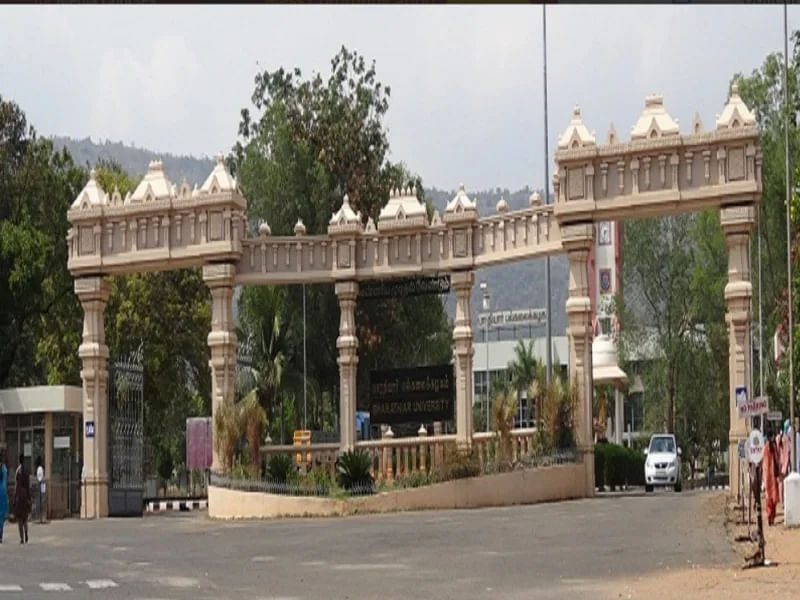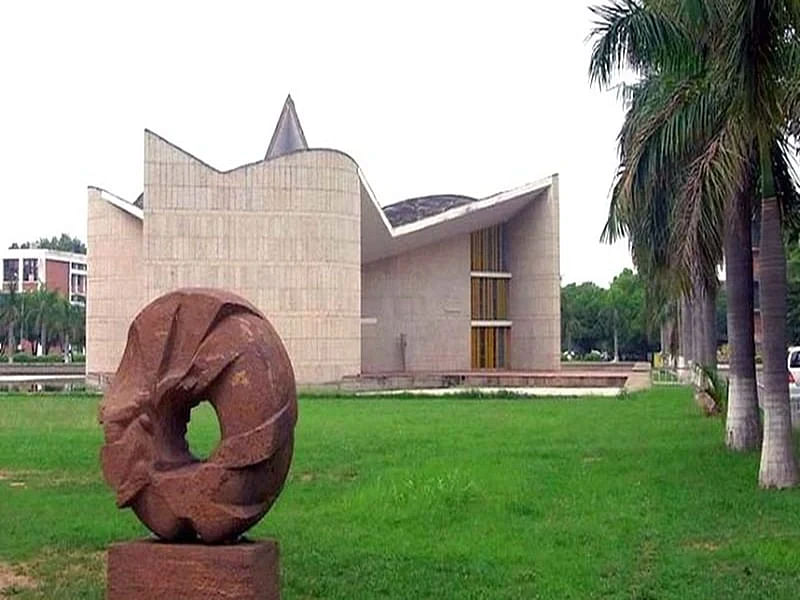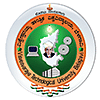M.Phil Economics

M.Phil Economics or Master of Philosophy in Economics is a two-year master's degree course that deals with the practical and abstract study of wealth formation and distribution economic theories. The M.Phil Economics course can be pursued by people who are interested in economics-related domains. A successful M.Phil Economics graduate of the course has various opportunities available in the progress of the economy. The job opportunities for the M.Phil Economics course are also wide in numbers in both the private and public sectors of various reputed organizations in India and abroad.
M.Phil Economics Course Details
| Degree | Masters |
| Full Form | Master of Philosophy in Economics |
| Duration | 2 Years |
| Age | No specific Age Limit |
| Minimum Percentage | 50% |
| Average Fees | ₹2K - 70K PA |
| Similar Options of Study | M.Phil (Commerce), M.Phil (History), M.Phil (Sociology) etc |
| Average Salary | INR 5.11 LPA |
| Employment Roles | Postsecondary / Higher Education Assistant Professor, Research Scientist, Quality Control Analyst, Software Development Project Manager, Psychologist, High School Teacher, Market Research Analyst etc |
| Top Recruiters | Sigma Aldrich Corp, Scientific Publishing Services, High Schools, Colleges and various other Institutions |
About Master of Philosophy in Economics
The definition is given by U.S.News, "An economics major is a degree option that examines questions related to resource allocation, incentives and wealth, among others." The course falls under the umbrella of the M.Phil, and therefore follows a similar foundation of the study. M.Phil Economics course aims to explain how economies work and how economic agents interact. The M.Phil Economics course has a wide job scope in almost every private and public sector of various reputed organizations with job responsibilities concerned with healthcare and science.
Table of Contents
- M.Phil Economics Eligibility Criteria
- M.Phil Economics Admission Process
- Popular M.Phil Economics Entrance Exams
- Top M.Phil Economics Colleges
- Why Choose M.Phil Economics?
- M.Phil Economics Fees Structure
- M.Phil Economics Syllabus and Subjects
- Preparation Tips for M.Phil Economics
- Scope of Higher Education for M.Phil Economics
- M.Phil Economics Salary
- M.Phil Economics Career Options
- Skills to Excel
Eligibility Criteria for M.Phil Economics
Admission for the M.Phil Economics course in India requires the aspirants to complete their master's degree in economics from any recognized institution. All the M.Phil Economics colleges require students to have a minimum of 50 % aggregate marks in their 10+2+3+2 education. As there are many entrance exams for the M.Phil Economics course, students can apply for any college of their choice from anywhere in India. There is no specific age limit or criteria for getting M.Phil Economics admission.
Admission Process for M.Phil Economics
The admission process for the M.Phil Economics course in India is carried out either from the college premises directly or can be done online. The admission process for the M.Phil Economics course is undertaken strictly based on the scores of 10+2+3 and a master's degree in Economics. The aspirant has to qualify for the entrance exams which the individual University/College conducts. Listed below are the various procedures to get admission for the M.Phil Economics course:
How to Apply?
The aspirants eager to study M.Phil Economics can either apply online or offline for the course. The aspirants can apply for the M.Phil Economics course details by downloading an admission form available online at the university or on the college website. After submitting the college or university application form, the aspirants will be invited to appear for a written test, personal interview, group discussion, and counseling.
Selection Process
The M.Phil Economics selection process for the course is based on the entrance exam scores and performance in Secondary and Higher Secondary Education of mathematical background. After completing the 10+2 exam, the college or university conducts an entrance exam, a written test, personal interview, counselling, and group discussion. The aspirants are allocated seats based on the various M.Phil Economics criteria fulfilled by the aspirants proposed by the college/university officials.
Popular Entrance Exams for M.Phil Economics
There are few entrance exams for the M.Phil Economics course for which the students can attend and have a clear idea of the course. The graduates can book their seats for the course in any recognized college or university. Some of the entrance exams are:
Quick Glance At the M.Phil Economics Entrance Exams
M.Phil Economics has limited entrance exams from different universities or institutions. The entrance exams conducted for the M.Phil Economics Degree course include various questions related to Mathematics, Reasoning, Logic, Social Studies, etc. The entrance test includes:
- Multiple choice objective type questions with negative marking
- 350 marks paper with a three-hour duration
- The entrance exam is conducted in English and Hindi.
- Most of the questions in the entrance exams are merely related to Microeconomics, Macro Economics, Statistics and Econometrics, Money and Banking, etc.
Top 10 M.Phil Economics Colleges in India
Top M.Phil Economics colleges in India and abroad offer M.Phil Economics graduate degree courses to students interested in Research Techniques, Foreign Trade, Policymaking Methods, Quantitative Analysis, and more. Some of the very best colleges for M.Phil Economics colleges in India are as follows:
|
SI.No. |
Name of the College |
|
1 |
|
|
2 |
|
|
3 |
|
|
4 |
|
|
5 |
|
|
6 |
|
|
7 |
|
|
8 |
|
|
9 |
|
|
10 |
Fee Structure for M.Phil Economics
M.Phil Economics fees structure ranges from INR 5K - 1 LPA. The fee for an M.Phil Economics course may vary depending upon the facilities and amenities provided at the college/university and the level of education provided.
|
College Name |
Fees Per Annum |
|
Dr. Babasaheb Ambedkar Marathwada University, Aurangabad |
INR 5K |
|
Maharshi Dayanand University, Rohtak |
INR 6K |
|
Jadavpur University, Kolkata |
INR 5K |
|
Bharathiar University, Coimbatore |
INR 10K |
|
Mumbai University, Mumbai |
INR 5K |
Syllabus and Subjects for M.Phil Economics
The syllabus and subjects for the M.Phil Economics course are structured in such a way so that the students get a better understanding of different subjects of the course, which are important for them to generate their knowledge in various courses ahead. The syllabus covers econometric Methods, Advances in Microeconomic Theory, Trade and Development Dynamics, ROL, and many more. The M.Phil Economics in India has various lectures, workshops, assignments, and seminars. Some of the important subjects of the M.Phil Economics course is:
- Econometric Methods
- Advances in Microeconomic Theory
- Trade and Development Dynamics
- ROL
- Dissertation
Read More About M.Phil Economics Syllabus and Subjects
Why Choose M.Phil Economics?
The M.Phil Economics course is for those students who wish to join the Indian Economic Service and Reserve Bank of India, which are excellent options open to those who want to join government services after it. There are abundant opportunities for those who have completed the PG (Postgraduate) programs in economics, and they can seek out employment in public and private undertakings. The demand for true and dedicated professionals in the field of Economics is growing rapidly in the prevailing job market.
What is M.Phil Economics All About?
Master of Philosophy in Economics Or M.Phil Economics is a master's degree program. The M.Phil Economics course duration is two years. The M.Phil Economics subjects in this course deal with various focal points of economic and business developments and problems and techniques to tackle them effectively. The following are some of the subjects included in the M.Phil Economics syllabus: Econometric Methods, Advances in Microeconomic Theory, Trade and Development Dynamics, ROL, and many more.
What Does an M.Phil Economics Graduate Do?
M.Phil Economics graduate holds a master's degree in economics, a good career option in India and abroad. M.Phil Economics prepares you for an entry-level career and gives you the option of becoming licensed after graduation. Here are some qualities which an M.Phil Economics graduate inherits:
Critical and Logical Thinking: The most significant skill is to develop a way of thinking that needs critical insight and rigorous logical reasoning.
Communication: Communication abilities M.Phil Economics needs to be able to communicate their findings to others. Students may give presentations, explain reports, or provide financial advice to clients.
Reasons Why M.Phil Economics Can Fetch You a Rewarding Career
A degree in M.Phil Economics is recognized worldwide. M.Phil Economics is a social science program concerned with the production, distribution, and consumption of commodities and services. The M.Phil Economics Course trains students to play a better role and will help them prepare for a career as an economist.
Demand: Economists will always be needed in all businesses, and employers worldwide are looking for economics graduates.
Career Growth: M.Phil Economics Course is for students interested in the business and industrial development of the global sector. This course will provide them with adequate knowledge to become agents of economic development and change.
Read More About M.Phil Economics Jobs
Preparation Tips For M.Phil Economics
M.Phil Economics students can prepare themselves by learning the basics of economics. Aspirants who are good at mathematics, calculation, research, and analyzing can thoroughly prepare the syllabus content. Students can follow some of the tips mentioned below for M.Phil Economics Course preparation:
Make a Plan: Make a course plan that can help the student plan according to the study of the work, which enables them to keep both balanced.
Preparation: Preparing for assignments before attending class will make students understand the syllabus very well and lead students to ask many questions, which will better clarify their doubts.
Interact With Professors: The interaction with the professors can bring in a new insight into the subjects for the course.
Scope For Higher Education
The scope for higher education for M.Phil Economics with best salaries offered in India and abroad with almost all private and public sectors of various organizations. After completing their degree, students can always seek higher education, which will improve their long-term professional chances. Many postgraduates in India have recently been observed pursuing higher education in sectors such as management and law, among others.
Salary Of an M.Phil Economics Graduate
M.Phil Economics Course salary varies with different job profiles. With some experience in the field, M.Phil Economics graduates can earn a very good salary. M.Phil Economics salary varies according to an aspirant's knowledge and skills. Another factor that changes the average salary package is the company and post you are working for. The M.Phil Economics Courses average salary, which is offered, ranges from INR 1 - 14 LPA [Source: Glassdoor].
Read More About M.Phil Economics Salary
Career Options After M.Phil Economics
After completing an M.Phil in Economics, you are eligible for junior-level posts in private and government jobs in India and abroad. M.Phil Economics aspirants have an excellent job scope in the future and vast job opportunities. M.Phil Economics is a continuous up-gradation of so many various fields of economics and social science. M.Phil Economics jobs are found in the roles:
- Professor
- Budget Analyst
- Financial Consultant
- Probationary Officer
- Economist
- IAS officer
Skills That Make You The Best M.Phil Economics Graduates
M.Phil Economics aspirants should possess critical and analytical skills, numerical skills, problem-solving, adaptation skills, effective communication, policy management, and decision-making skills. In addition, they have to be confident, dedicated and committed to their aspiration. Finally, an M.Phil in Economics requires applied analyzing and adaptability —a hands-on understanding of the work and strong interpersonal skills such as networking, leadership, and conflict resolution. Skills that make you suitable for M.Phil Economics aspirants:
- Problem Solving Skills
- Analytical Skills
- Mathematical Skills
- Management Skills
- Technical Skills
- Communication




